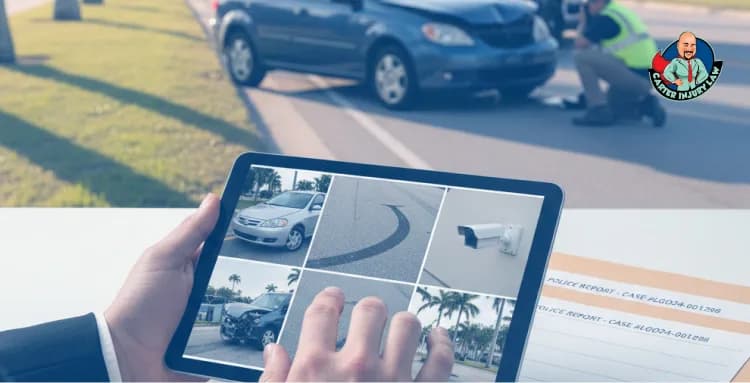You step out of your car. The impact was real—you felt it in your chest, the sudden jolt snapping you forward. However, as you turn to look at your vehicle, all you see are a few scratches, maybe a dent if you squint hard enough.
And that’s when the doubt creeps in.
How could you be hurt if your car barely shows any damage? Who’s going to believe you? The insurance company? The other driver? Maybe even you’re starting to wonder if the pain in your neck is just in your head.
However, injuries don’t care what your car looks like. And neither should you. Because the truth is...
(1) Low-Impact Collisions Can Still Cause Injuries
When you think of car accidents, you might picture a scene of twisted metal and shattered glass. However, not every accident looks like that. In fact, low-impact collisions, where your car doesn’t seem damaged, can still result in significant injuries.
Your Body Takes the Force, Even When Your Car Doesn’t
Just because your car doesn’t look damaged doesn’t mean your body didn’t take the hit. Cars are built to absorb impact, but your body isn’t. Even a low-speed crash can cause whiplash, back pain, or other injuries because your body is moving inside the car while everything around you comes to a sudden stop.
Cars Are Designed to Minimize Visible Damage
Modern vehicles are made to crumple in certain areas to protect passengers. That means the impact is spread out in a way that doesn’t leave behind obvious dents or broken parts. The lack of damage to your car doesn’t mean the crash wasn’t serious—it just means the car did what it was built to do.
Research Proves That Minor Crashes Still Cause Injuries
Studies have shown that even at low speeds, the human body can suffer injuries from the sudden force of impact. Soft tissue damage, concussions, and spinal injuries don’t require a car to look totaled. If you feel pain after a crash, that’s not just your imagination—it’s your body telling you something is wrong.
(2) Don’t Let Insurance Companies Decide If You’re Hurt
After an accident, the last thing you want to deal with is an insurance company telling you that your pain doesn’t matter. The reality is, they don’t know what you're feeling, and they don’t want you to question their judgment. Here's why you shouldn’t let an insurance company decide the extent of your injuries.
Insurance Adjusters Will Try to Minimize Your Claim
Insurance companies have one goal—to pay out as little as possible. They’ll tell you that if your car isn’t crushed, you couldn’t have been seriously injured. However, that’s not how the human body works, and they know it. They just hope you don’t fight back.
People Get Hurt in Low-Speed Collisions All the Time
You don’t have to be in a high-speed crash to suffer real injuries. A sudden jolt, even at a low speed, can cause herniated discs or other long-term issues. It happens every day, and we’ve seen it firsthand.
Your Pain Is the Only Truth That Matters
An insurance adjuster doesn’t live in your body. They don’t wake up feeling the pain in your neck, your back, or your head. Only you know what you’re going through, and no amount of insurance company tactics can change that.
(3) Every Person’s Injury Is Different
Just because someone doesn’t show the same physical signs doesn’t mean they’re not suffering. Here’s why every injury, and every person, is unique.
Same Crash, Different Outcomes
Two people can be in the exact same accident and walk away with completely different experiences. One might feel fine, while the other is in serious pain. That doesn’t mean one is exaggerating—it just means every body reacts differently to impact.
Age, Health, and Pre-existing Conditions Matter
An 85-year-old with arthritis won’t handle a crash the same way a 25-year-old athlete would. Someone with prior back issues might suffer a severe injury, while another person in the same car barely feels sore. Your body’s history plays a role, and that’s something insurance companies conveniently ignore.
Your Pain Is Real, No Matter What the Car Looks Like
A car’s condition doesn’t determine how much you’re hurting. Just because the bumper isn’t falling off doesn’t mean you’re not dealing with nerve damage or chronic pain. Your injuries aren’t measured in dents and scratches—they’re measured by how they affect your life.
For more details on how even low-impact collisions can result in injuries, watch this video where we discuss the truth about insurance claims and personal injury in these cases.
(4) Your Right to a Claim – Even in a Low-Damage Accident
If you've been injured, regardless of how your car looks, you still have the right to make a claim. Here's why you shouldn't let the lack of visible damage stop you from seeking the compensation.
Car Damage Doesn’t Decide Your Injury Claim
Yes, the insurance company will look at the damage to your car when valuing a claim. Your body doesn’t follow the same rules as metal and plastic—injuries happen even when the car looks fine.
Your Pain Is the Only Truth That Matters
If you’re hurting after an accident, that’s the reality—not whatever an insurance adjuster wants you to believe. They’ll try to downplay your injuries, but they weren’t in the car with you. They don’t feel the stiffness in your neck, the headaches, or the shooting pain in your back. You do. And that’s what counts.
You Have the Right to Fight for Compensation
Regardless of what the insurance company claims, you have the legal right to seek compensation if you’ve been injured. From medical expenses and lost wages to pain and suffering, you shouldn’t have to shoulder the financial burden of someone else’s negligence.
Will You Go to Court After a Car Accident? Carter Injury Law Explains It All
How to Handle Out-of-State Car Insurance Claims in Florida Accidents
Why Hiring a Lawyer Who Goes to Court Could Be the Best Decision After an Accident
Justice Isn’t Given, It’s Earned – And We’re Here to Help You Earn It
The insurance company wasn’t there when the accident happened, yet they often act as if they know your experience better than you do. They often believe they have the authority to determine the validity of your pain.
We don’t play by their rules. You know your body, and that’s the only truth that matters. We help you cut through the noise—the paperwork, the excuses, the tactics meant to wear you down. We make sure your injuries aren’t dismissed just because the damage to your car doesn’t tell the full story.
If they fail to recognize the seriousness of your case, we make sure your rights are fully represented. In the courtroom, in front of a jury, wherever it takes to make sure you’re heard. Because your pain is real. And we won’t let anyone tell you otherwise.












